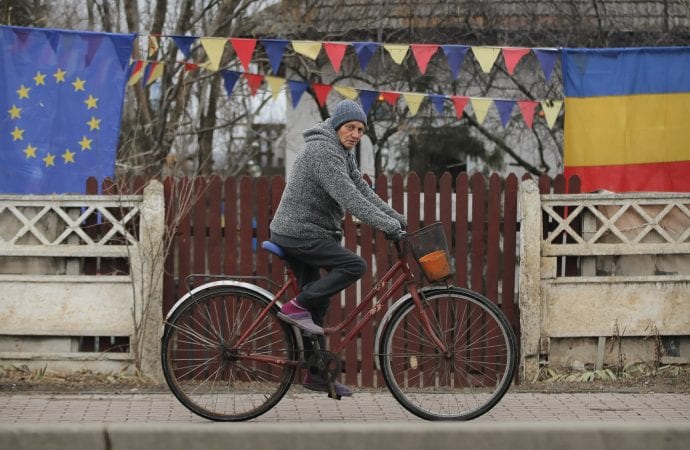When Pope Francis lands in Romania in late May, the local church hopes that he will be able to encourage a “spiritual wind” from the East into Europe and rebuild the chilled relations between the Catholic and Orthodox communities in the country.
“This side of Europe is a little bit more tied to spirituality, it’s not yet as predominantly attached to the material world as the West,” said Romanian Father Francisc Dobos, spokesman for the Catholic Archdiocese of Bucharest, in a March 18 interview with Crux.
“It can become a place to say: ‘Europe wake up! Take a breath from a spiritual point of view’,” he added.
The interview took place after a meeting with the press organized by Rome’s Opus Dei-run Santa Croce University, to discuss the May 31 to July 2 papal visit to the Eastern European country of Romania.
Over 80 percent of the Romanian population is Eastern Orthodox, with Catholic faithful representing a minority at only 4.7 percent, according to a 2011 census. While dialogue between the two denominations is “peaceful and open,” Dobos said during his presentation, it has become “more rigid” and “less fruitful than before.”
When Saint John Paul II visited Romania in 1999, he could rely on his strong personal relationship with the then head of the Romanian Orthodox church, Patriarch Teoctist. This bond was manifest in frequent ecumenical displays in the country, from praying together to attending each other’s Masses.
But according to local clergy the relationship between Catholics and Orthodox lost most of its enthusiasm once Patriarch Daniel took the helm of the Romanian Orthodox church in 2008.
The new Patriarch “has not encouraged the celebration of joint prayers, not with Catholics nor with any other religious denominations. There is not even anymore a joint prayer during the Week of Prayer for Christian Unity,” said Archbishop Ioan Robu of Bucharest, president of the Romanian bishops’ conference in an interview last year.
According to Dobos there are many examples of sincere friendship and dialogue with individual Orthodox priests, but some fringes of the majority religion struggle to consider Catholicism a “sister faith.”
“For the Orthodox church when we use the term ecumenism it’s like having an electric shock,” he said, adding in a positive spin that “if we don’t have ecumenism, well, then we have bridges, we knock down walls and we walk together.”
Relations are particularly strained between the Orthodox Church and Greek Catholic minority, which suffered some of the harshest oppression during the 1948-1998 Communist regime. The Greek Catholic faith was outlawed, and its properties handed over to the Orthodox church.
Since some of that property was never returned - including a much-disputed cathedral in Baia Mare - the tensions persist. As Robu described, “relations between Greek Catholics and Orthodox are living a sort of winter.”
Addressing the complex relations with the Orthodox majority will probably be on Francis’s to-do list once he arrives in Romania on the 20th anniversary of John Paul II’s historic visit. The country’s widespread corruption and the diaspora of many of its citizens to other European countries are two other important issues that the local church hopes the pontiff will address, Dobos said.
In 2007, when Romania joined the European Union, up to 3.4 million Romanians left their country, according to a 2018 study by Immigrant Integration Research Centre at Move, an international conference discussing migration and the integration of migrants. In 2016 the number of young people aged 15-29 fell by 28 percent, according to Eurostat data.
These alarming numbers have impacted not only the country’s long-term future, but also the survival of its religious minorities that have witnessed their ranks substantially diminished.
Dobos hopes that Francis’s papal visit may reinvigorate the local Catholic Church by encouraging it to reach out to believers not only with the Sacraments, but also with a “social engagement for the common good.”
The goal is “for Catholics to become a voice in the public realm,” he added. “To be brave and realize that we have a role, just like the Greek Catholics, in the creation of Romania.”

